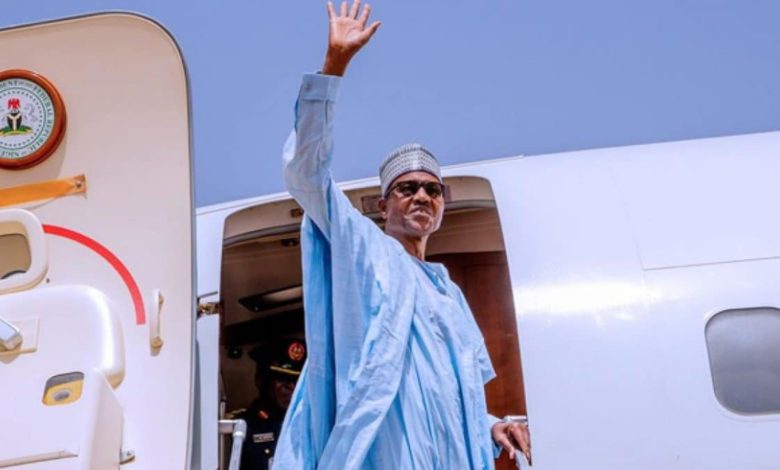President Buhari Jets To Mali On Peace Mission, Ignores Crisis At Home

President Muhammad Buhari of Nigeria left Abuja for Bamako, the capital city of the Republic of Mali, on Thursday, July 23, on a one-day peace mission to the country struggling with an internal crisis in which at least 11 persons have died in street protests.
The visit is a follow-up to earlier mission by former president of Nigeria, Dr Goodluck Jonathan, who led an ECOWAS peace mission but reported on Sunday that the delegation failed in its assignment of brokering peace between the government and the opposition coalition.
The President’s Special Adviser on Media and Publicity, Mr Femi Adesina, confirmed on Wednesday that the president agreed to further consultations to secure lasting peace in the politically troubled country.
“The Nigerian president and some ECOWAS leaders led by the Chairman of the Authority of Heads of State and Government of the sub-regional organisation, President Issoufou Mahamadou of Niger Republic, agreed to meet in Mali to engage in further consultations towards finding a political solution to the crisis in the country.
”Host President, Ibrahim Boubacar Keita and Presidents Machy Sall of Senegal, Nana Akufo-Addo of Ghana and Alassane Ouattara of Cote d’Ivoire are expected to participate in the Bamako meeting,” Adesina said.
Jonathan, in a company with the President of ECOWAS Commission Jean-Claude Kassi Brou briefed Buhari in Abuja on Tuesday on the situation in Mali.
The Crisis in Mali
Tens of thousands of people in Mali had engaged in street protests and demanded Keita step down.
The protests were led by a coalition of opposition groups, known as the June 5 Movement, inspired by influential Muslim cleric Mahmoud Dicko.
The police fired teargas on the protesters in an attempt to disperse them following which some persons died and others were injured.
The coalition accused Keita of corruption and displaying a nonchalant response to insecurity, especially with the jihadist insurgency war in the northern part of the country.
Keita was re-elected in 2018 for a second term and is facing serious security challenges and a lack of resources to fight the coronavirus pandemic in the country.
The country struggles with unrests with many jihadi groups roaming the northern desert region as well as political tensions after parliamentary elections in March, 2020.
Mali, a predominantly Muslim country, has been struggling with instability since 2012 when Tuareg separatists seized the North and other groups linked to Al-Qaeda wreaking havoc across communities.
The main Islamist groups in the country include Ansar Deen, Movement for Unity and Jihad in West Africa, Al-Qa’eda in the Maghreb (AQIM), and Islamic Movement for Azawad.
The disputed elections had a low turnout against the background of intimidation, vote-buying and the fear of jihadists.
The opposition leader Soumaila Cisse was also kidnapped at the time.
Internal Security Challenges in Nigeria
Nigeria is also facing internal security challenges with terrorists attacking and ravaging many parts of the country.
Boko Haram and ISWAP continue to attack villages in the Northeast of the country and are steadily moving to the Northwest where they have joined terrorists in Zamfara and Katsina states to inflict terror on communities.
Several soldiers have been killed and hundreds of civilians murdered or made homeless due to attacks on their communities as a result of which some have become refugees in neighbouring Niger Republic in the North.
Buhari is facing criticisms for not changing security Armed Forces chiefs who are seen as doing nothing to bring the insecurity to an end.
An online poll by HumAngle shows at least eight out of 10 Nigerians want the military chiefs to resign for poor performance on their jobs.
“They are incompetent and overdue; they’re not ready to end this terrorism. Let them go,” Muhammad Lawan tweeted.
Support Our Journalism
There are millions of ordinary people affected by conflict in Africa whose stories are missing in the mainstream media. HumAngle is determined to tell those challenging and under-reported stories, hoping that the people impacted by these conflicts will find the safety and security they deserve.
To ensure that we continue to provide public service coverage, we have a small favour to ask you. We want you to be part of our journalistic endeavour by contributing a token to us.
Your donation will further promote a robust, free, and independent media.
Donate HereStay Closer To The Stories That Matter




